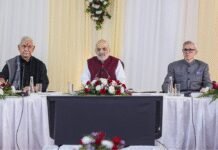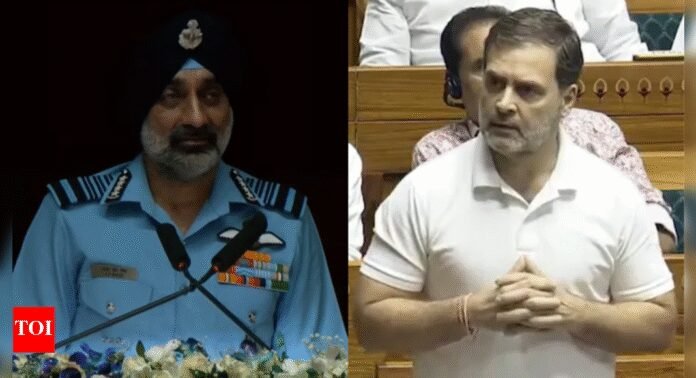NEW DELHI: Chief of the Air Staff Air Chief Marshal AP Singh on Saturday attributed the success of Operation Sindoor to the “political will” of the central government, asserting that the Indian Armed Forces carried out the mission without any external constraints. His remarks came in response to criticism from the opposition, particularly leader of opposition in Lok Sabha Rahul Gandhi who recently attacked PM Narendra Modi in the House by questioning the government’s resolve.“A key reason for success was the presence of political will. There was very clear political will and very clear directions given to us. No restrictions were put on us… If there were any constraints, they were self-made. The forces decided what the rules of engagement would be. We decided how we wanted to control the escalation. We had full freedom to plan and execute,” Singh said at an event at the HAL Management Academy in Bengaluru.
The air force chief highlighted that the Chief of Defence Staff (CDS) played a key role in uniting the Army, Navy, and Air Force to work in coordination. “There was a synchronisation between the three forces… The post of CDS made a real difference. He was there to get us together. NSA also played a big role in getting all the agencies,” he said.Earlier in Parliament, Rahul Gandhi had accused the government of lacking political will during Operation Sindoor. “You told the Pakistanis exactly what you would do. You told them we would not hit military targets, you told them we do not want escalation… It means you have directly told Pakistan that you do not have the political will to fight,” Gandhi said, also alleging that political constraints led to the loss of Indian fighter jets.Also read: Operation Sindoor: Rahul Gandhi slams government’s handling of military response; says pilots’ hands were ‘tied’ during strike – Top quotes
India launched Operation Sindoor on May 7 in response to the April 22 Pahalgam terror attack that killed 26 people. The armed forces targeted terror infrastructure in Pakistan and Pakistan-occupied Jammu and Kashmir, eliminating over 100 terrorists linked to groups such as Jaish-e-Mohammed, Lashkar-e-Taiba, and Hizbul Mujahideen.Pakistan retaliated with cross-border shelling, attempted drone strikes, and air defence measures. India’s counterstrikes damaged radar installations, communication hubs, and airfields across 11 Pakistani bases, including the Nur Khan air base.









